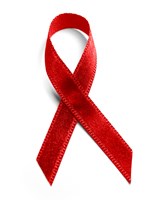
Top stories






More news

ESG & Sustainability
#AGES2026: How to back Africa's next-gen green and blue entrepreneurs















Logistics & Transport
#Budget2026: Road freight logistics and what it means for consumers


Research has found that people with HIV are more likely to show signs of vitamin and mineral deficiencies. Lobel said: "HIV-positive people suffer from loss of appetite, therefore they need to make an extra effort to ensure that they are eating enough. Helpful suggestions include eating several small meals per day to keep energy levels up, and mashing or liquidising food to ease swallowing."
She advises that people with HIV should avoid what she calls "empty calorie foods", like sweets and chocolates, and steer towards nutrient-dense foods such as:
Wholegrains and starchy foods should be the basis of each meal; these foods are relatively cheap and supply lots of energy, which help to keep the body weight stable. Foods such as pap, bread, porridge, cereals, rice, potatoes, sweet potatoes, samp, millet, mealies, sorghum and pasta should form the biggest part of each meal.
Eat lots of fruits and vegetables; they supply vitamins and minerals that strengthen the immune system. A wide variety of fruits and vegetables should be eaten every day, especially spinach, moroga, pumpkin leaves, green peppers, sweet potato, squash, pumpkin, carrots, yellow peaches, apricots, paw paws and mangoes. These contain vitamin A, which keeps the linings of the gut and the lungs healthy and so prevents germs from entering the body. Citrus fruits like oranges, naartjies, grapefruit, lemons, and guavas supply vitamins C, which helps fight infections.
Eat dried beans, peas, lentils, peanuts or soya regularly; this group supplies protein needed to strengthen the immune system and muscles. More cooked dried beans, peas, lentils, peanut butter and soya beans should be included in the diet and these foods are a more economical protein source than those from animals.
Use salt sparingly. Often people living with HIV suffer with diarrhoea and vomiting, and salt is lost from the body. Therefore, ingesting some salt is necessary to replace these losses; however eating a lot of salt contributes to high blood pressure. HIV people should use salt sparingly to help control blood pressure and reduce the need for further medication.
Lobel believes that a combination of anti-retroviral treatment and healthy eating can prolong the lives of HIV-positive people. She said: "A diet deficient in energy, protein, carbohydrates, fat, vitamins or minerals can greatly compromise the body's defence mechanism and cause weight loss and muscle wasting, which affect the health of the individual. Malnutrition and weight loss have shown to increase the progression of HIV. Healthy eating is crucial to ensure adequate energy and vitamin and mineral intake to help boost the immune system."